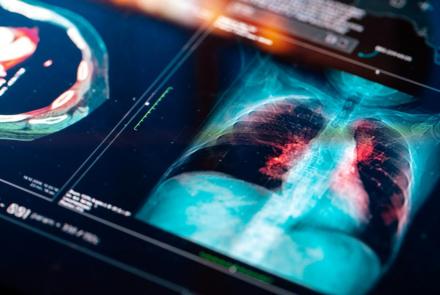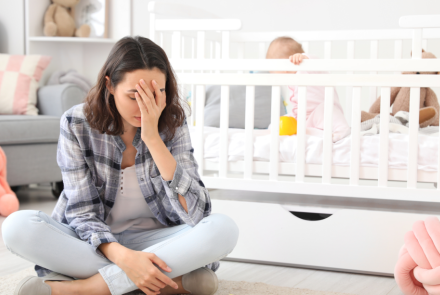Pneumonia, an infection of the lung tissue, can be caused by bacteria, viruses or fungi. Older adults and people with chronic diseases, including COPD, asthma, diabetes, heart disease, and kidney disease, are at higher risk for bacterial pneumonia, says David Hodes, MD, a pulmonologist at Highland Medical, P.C., in West Nyack, New York. He says while there are many types of pneumonia, the risk of some of the most serious types can be reduced substantially through vaccination.
Many people don’t realize one of the most important ways to protect yourself against pneumonia is by getting an annual influenza vaccine, Dr. Hodes says. The flu is a common cause of some of the most serious strains of pneumonia, so preventing influenza with a flu shot is a good way to help prevent pneumonia.
Pneumonia Vaccine
Adults 65 and older should get vaccinated against pneumococcal pneumonia, caused by the bacteria called Streptococcus pneumoniae. “This bacteria produces a potentially very serious kind of pneumonia, which often requires prompt hospitalization,” Dr. Hodes says. The pneumococcal vaccine is also recommended for adults of all ages who are at increased risk of pneumococcal disease due to other health conditions. These include people with chronic illnesses (chronic heart, diabetes, liver, kidney, or lung—including chronic obstructive lung disease, emphysema, and asthma) or conditions that weaken the immune system (HIV/AIDS, cancer, or damaged/absent spleen).
There are two types of pneumococcal pneumonia vaccines: PCV13 and PPSV23.
- PCV13 (Prevnar 13) protects against 13 types of pneumococcal bacteria. The Centers for Disease Control and Prevention (CDC) recommends PCV13 for use in adults 65 years or older. Adults younger than 65 years old who are at increased risk for getting pneumococcal disease may also need a dose of PCV13.
- PPSV23 (Pneumovax) protects against 23 types of pneumococcal bacteria. CDC recommends it for all adults 65 years or older.
Talk to your doctor about whether you should receive one or both of the vaccines. Dr. Hodes notes that there is no live bacteria in the vaccine, so it is not possible to get pneumonia from the vaccine. Either of the pneumococcal vaccines can be given at any time during the year and can be given at the same time as influenza vaccine. Except in certain very high-risk situations, the two pneumococcal vaccines are to be given one year apart.
Other ways you can prevent pneumonia and viruses that increase the risk of pneumonia are:
- Wash your hands frequently
- Regularly disinfect frequently touched surfaces
- Take good care of your medical problems
- Quit smoking
Other Types of Pneumonia
Walking pneumonia is a term referring to community-acquired pneumonia that is often milder than pneumococcal pneumonia. It is usually caused by tiny bacteria, among them mycoplasma pneumoniae, which can live and grow in the nose, throat, windpipe, and lungs.
Legionnaires’ disease is caused by the Legionella pneumophila bacteria. It is not spread through person-to-person contact. Legionella bacteria can grow in water found in hot tubs, hot water tanks, fountains, or cooling towers. People may get Legionnaire’s disease when they inhale water vapor or mist containing the bacteria.
Hospital-acquired pneumonia is an infection of the lungs that occurs during a hospital stay or in other long-term care facilities such as nursing homes. This type of pneumonia can be very severe—even fatal. Pneumonia that starts in the hospital tends to be more serious because people in the hospital are often very sick and can’t fight off germs, and the types of germs in a hospital are often more dangerous and resistant to treatment than those in the community.
Diagnosis
Pneumonia symptoms can include cough (sometimes including coughing up green or yellow mucus), fever, shaking, chills, and shortness of breath. Your doctor will diagnose pneumonia with a physical exam and chest X-ray. When a person with pneumonia inhales, the lungs make crackling and/or rumbling sounds. In as many as 50% of cases of pneumonia, chest sounds will be normal.
Treatment
Pneumonia treatment depends on the cause of the pneumonia, how severe your symptoms are, your age and overall health. For milder cases of pneumonia, your medical practitioner may prescribe oral antibiotics and getting enough rest. People who are hospitalized for pneumonia receive intravenous antibiotics and where appropriate, breathing treatments and other indicated therapies.
A healthy person who catches pneumonia outside of the hospital may feel much improved very quickly, but some people may feel fatigued up to four weeks after the illness began even with appropriate treatment.
“Pneumonia is a serious lung disease that kills thousands every year and hospitalizes many more,” Dr. Hodes says. “If you are over 65 or have a chronic disease and you haven’t had a pneumonia vaccine, talk to your doctor about getting vaccinated to protect yourself.” Adults of all ages should also get the influenza vaccine—it’s not too late for this season. He adds that young people have an extra incentive to get an influenza vaccine—it will not only protect themselves, but will also help prevent spreading the influenza virus to the older people they love.






